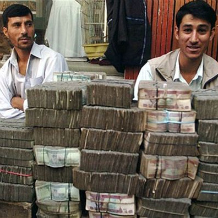Conflict and Development
Module Description
The module examines understandings of development and the intersections of social conflicts and citizenship in contemporary development.
The definition and measurements of development remains contested but has significant implications for contemporary development practices. We examine a range of approaches to the definition of development as involving "needs", "capabilities", and "rights". Contemporary practices emphasise development as a process involving the participation of the poor, we examine the potential for and limitations on the participation of the poor in development in comparison with theories which approach development as "power" or "discourse".
The second half of the module examines the interrelations between development and conflict. How are inequalities - both "vertical" and "horizontal" - related to the emergence of violent conflicts? Does the exploitation of natural resources, or the patterns of political development that result from resource exploitation, contribute to armed conflicts?
Module Objectives
The Module examines issues such as:
1. What is development? a.What are the implications of how we define or measure it?
2.What are the implications of current theories for development practice? a.How participatory can development be? b.What role for civil society? c.How do we understand power in development processes?
3.What are the relations between development and conflict? a.Are there correlations between patterns of development and violent conflict? b.How do we understand the dynamics of violent conflicts and their relations with development? c.How are inequalities of power and wealth related to conflicts? d.Can development aid contribute to conflicts? How can these risks be mitigated?
Preliminary Reading
Kothari, Uma and Martin Minogue (eds) (2002) Development Theory and Practice: Critical Perspectives, Basingstoke, Palgrave
Sen, A.K. (1999) Development as Freedom, Oxford, OUP
MacGinty, Roger and Andrew Williams (2009), Conflict and Development. Abingdon: Routledge
Duffield, Mark (2001) Global governance and the new wars: the merging of development and security. London: Zed Books
Assessment
One essay of 4000 words (100% of total mark).
Every year our students' feedback helps us to improve our modules
“The tutor was very knowledgable, with a great deal of international experience. His explanations were clear and helpful.”

